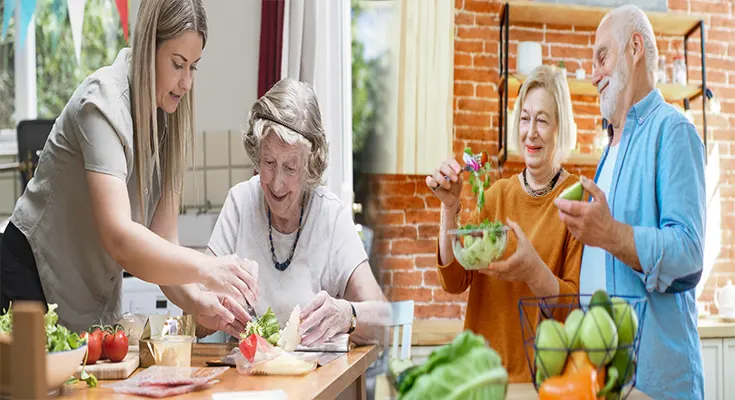As we age, our bodies undergo various changes that can have a significant impact on our nutritional needs and overall health. For elderly women, maintaining a balanced diet rich in essential nutrients is crucial for promoting well-being, energy levels, and longevity. Here are some key nutrition tips tailored specifically for the health and vitality of elderly women.
1. Prioritize Protein-Rich Foods
Protein is essential for maintaining muscle mass, strength, and overall physical function, especially in older adults. Elderly women should aim to incorporate protein-rich foods into their diet, such as lean meats, poultry, fish, eggs, dairy products, legumes, and nuts. Adequate protein intake can help prevent muscle loss, promote healthy aging, and support optimal physical performance.
2. Focus on Fiber-Rich Foods
Dietary fiber is essential for digestive health, weight management, and reducing the risk of chronic diseases such as heart disease and diabetes. Elderly women should consume a variety of fiber-rich foods, including whole grains, fruits, vegetables, legumes, and nuts. Fiber helps support regular bowel movements, improve gut health, and promote satiety, leading to better overall health and well-being.
3. Stay Hydrated
Proper hydration is crucial for maintaining optimal bodily functions, supporting cognitive function, and regulating body temperature, especially in older adults. Elderly women should aim to drink an adequate amount of water throughout the day, as dehydration can lead to various health issues such as urinary tract infections, constipation, and dizziness. Monitoring fluid intake and consuming hydrating foods like soups, fruits, and vegetables can help ensure proper hydration levels.
4. Include Calcium and Vitamin D
Calcium and vitamin D are essential nutrients for bone health, which is particularly important for elderly women at risk of osteoporosis and fractures. Incorporating calcium-rich foods like dairy products, leafy greens, and fortified foods, along with vitamin D sources such as fatty fish, eggs, and sunlight exposure, can help maintain strong and healthy bones. Consulting a healthcare provider for calcium and vitamin D supplementation may be necessary to meet specific needs.
5. Practice Portion Control and Mindful Eating
As metabolism slows down with age, portion control and mindful eating become crucial for managing weight and promoting digestion. Elderly women should pay attention to portion sizes, listen to hunger cues, and savor each meal to enhance satisfaction and prevent overeating. Eating slowly, chewing food thoroughly, and avoiding distractions while eating can improve digestion and nutrient absorption, leading to better overall health outcomes.
Incorporating these essential nutrition tips into the daily diet of an elderly woman can contribute to improved health, vitality, and quality of life. By focusing on protein-rich foods, fiber, hydration, bone health nutrients, and mindful eating practices, elderly women can support their nutritional needs and maintain overall well-being as they age gracefully. Consulting a healthcare provider or registered dietitian for personalized dietary recommendations can further optimize health outcomes and ensure a balanced and nourishing diet for a healthy and vibrant senior lifestyle.





